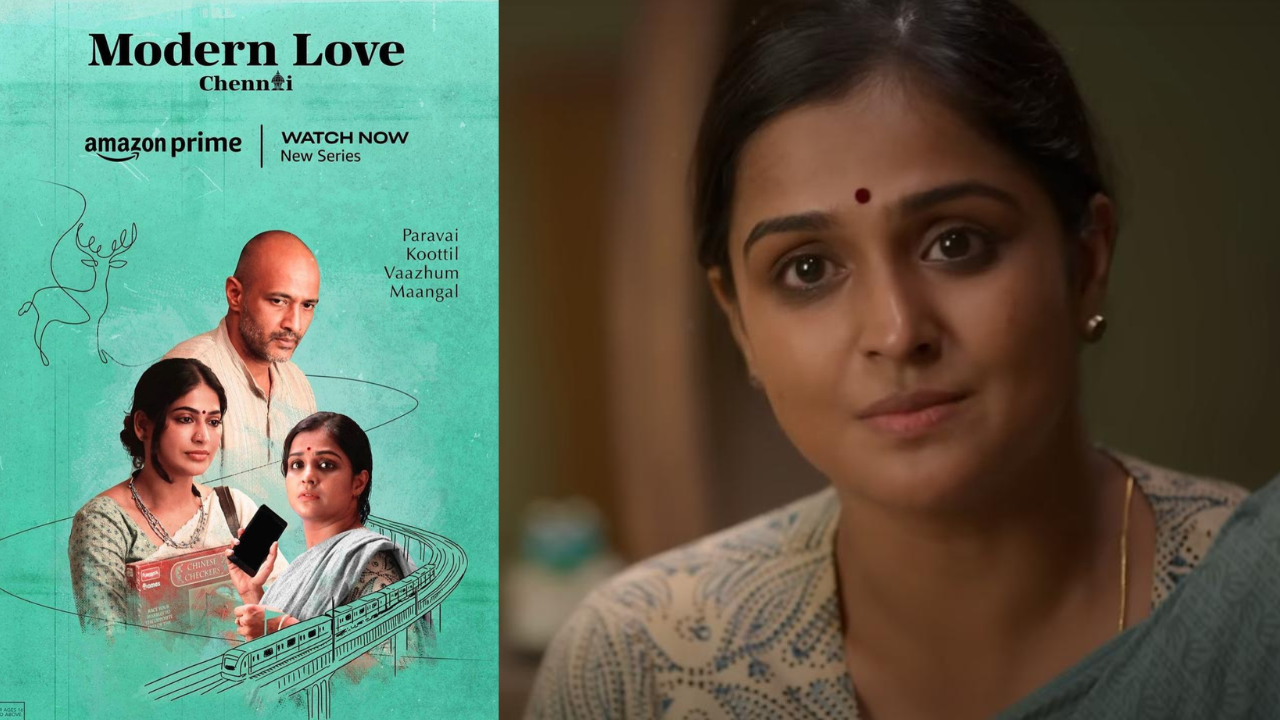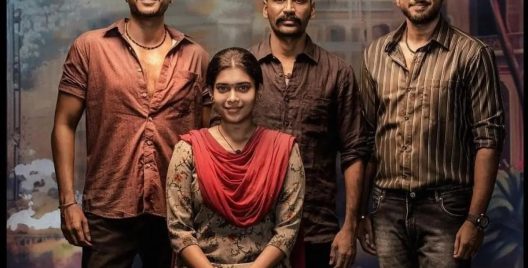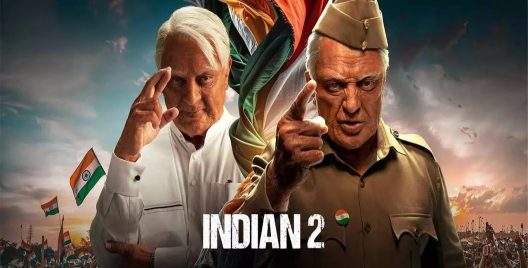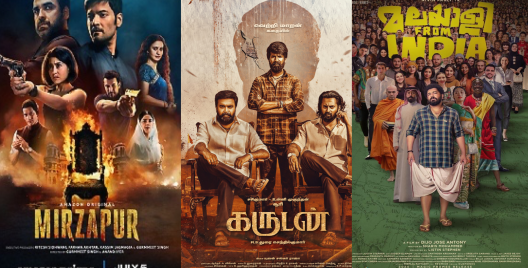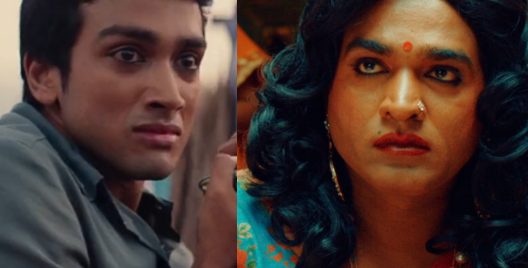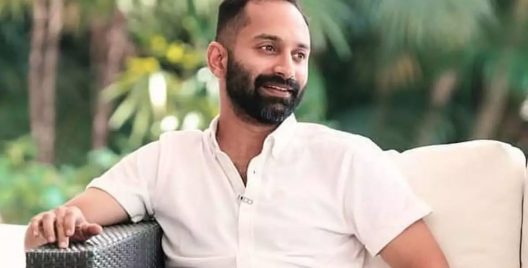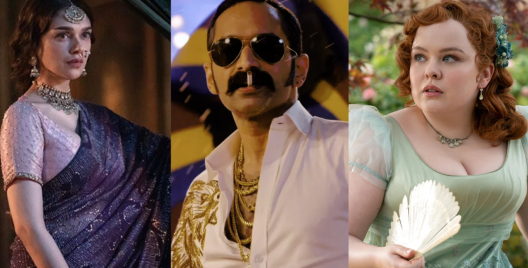This is the premise of veteran director Bharatiraja’s film Paravai Kootil Vazhum Maangal from the recently released anthology Modern Love Chennai on Amazon Prime Video. Several viewers and film critics have applauded the segment for its ‘mature’ treatment of an extramarital affair, where the adults in the room behave like model people and move on from the past instead of making things ugly for everyone concerned. Surely, this embodies a ‘modern’ kind of love – of letting go and healing?
But, a closer look at the film reveals that it follows a similar pattern to many other movies that have come out from the Tamil film industry. Not just in terms of the affair and the conclusion it reaches but also of the role that a ‘progressive’, ‘independent’ woman character plays in the plot.
As many viewers have pointed out, Ravi (Kishore), Revathi (Ramya Nambeesan) and Rohini (Vijayalakshmi Feroz) are the names of the actors who starred in Balu Mahendra’s Marupadiyum (1993), which was about a man who cheats on his wife too. The straying man has frequently appeared in Mahendra’s films, be it Kokila (1977), Olangal (1982), Rettai Vaal Kuruvi (1987) or Sathi Leelavathi (1995) – and in all of these films, the woman has very little choice in the matter outside of the patriarchal compulsions of marriage. She’s either ignorant of what’s happening or she decides to forgive the man for cheating on her because it’s important to preserve the marriage. At any rate, he suffers no major discomfort due to his actions and the woman eventually comes around to ‘adjusting’ with her fate.
Marupadiyum differed from these films in this aspect. A remake of Mahesh Bhatt’s Hindi film Arth (1982), here, the ‘other woman’ (Rohini) develops mental health issues due to her deep insecurity about the relationship she has with a married man (Nizhalgal Ravi). The wife (Revathi) walks out of the marriage, and assures the mistress that she will not take back the husband. When the husband tries to go back to her because the mistress has now broken up with him, convinced that the affair was a mistake, the wife doesn’t budge. She also asks him if he would have taken her back if she’d strayed from the marriage – and his stricken look reveals that he’d never considered such a possibility.
There are no biological children involved in Marupadiyum, and even when she has a chance to form a romantic relationship with another man (Arvind Swami), the wife chooses to remain single. She adopts her domestic worker’s child instead.
Though many have interpreted Paravai Kootil Vaazhum Maangal to be a reinterpretation of Marupadiyum or even a tribute because of the names of the characters and the circumstances, the film actually has more in common with Mahendra’s other films. Unlike the husband in Marupadiyum who loses his wife and mistress, Ravi of Paravai gets to have both of them in his life – and without doing the emotional labour of working out such a complicated relationship.
Revathi invites Rohini to their home, and it is she who plans the whole event – asking their paternal grandfather (Delhi Ganesh) to take the kids out so the adults can talk, doing the cooking, serving dinner, initiating the discussion on custody, managing the children’s outing and even offering a nightie for Rohini to make her comfortable for the night. Ravi spends most of his time smoking cigarettes in the balcony, barely contributing to the conversation, as if he has no role to play in the situation despite him bearing the greatest responsibility for bringing it upon the three of them.
Revathi says that she and Ravi had a fight over the affair, but we never get to see her anger represented in the film. Instead, her calm and composed behaviour is projected as aspirational. She readily gives up the custody of her children though she cares about them a lot and is their primary caregiver. In a patriarchal society, it is the father who has greater rights over the children than the mother, and the characters in the film conform to this notion. It would have been possible to read this as Revathi freeing herself from childcare and pursuing her dreams, had this been triggered by her choices in the first place. But it isn’t.
Further, the focus of the conversation between the two women is on protecting the children from the fallout of the marriage breaking. Revathi’s feelings as a wife and individual don’t seem to matter. She’s required to prioritise Ravi’s needs and the children’s emotions over her own – as has been the expectation from women for centuries.
There’s also no discussion on alimony, a spouse’s legal right. As the children’s primary caregiver, it’s unlikely that Revathi has an independent income or savings of her own. From the narrative that the film gives us, Ravi clearly doesn’t do much around the house. Revathi has given several years of her life to marriage and childcare, but there is no talk of her being compensated for her labour. Instead, she’s shown to get a job in another city very easily – as if the gap in her CV is of no consequence. These are real obstacles that women confront when they’re unable to invest time and energy in building their career, thanks to marriage and childcare, but the film isn’t interested in looking at these challenges because they matter to Revathi, not Ravi.
The biggest irony, however, is that the film gives the wife’s dialogue (Revathi’s) from Marupadiyum to Ravi. When his father tells him that what he’s doing is wrong and that he must stick to his marriage, Ravi asks if he’d have said the same if it was Revathi who had cheated on him. This makes Ravi sound like an immensely progressive man without him doing anything to deserve such a label. It begs another question – if Revathi had cheated on him and brought home another man, would Ravi be making dinner for the latter and laying out a fresh lungi for him to spend the night at their place?
The film’s treatment of the children also leaves much to be desired. Children are sensitive to shifting moods, and they’re unlikely to be so very ignorant of the changing dynamics between their parents. Children absorb the stress at home, even if they’re unable to articulate it. If they’re to process what’s happening to them, they deserve the truth and not a fairytale – especially when the new arrangement removes their mother, their primary caregiver, from the immediate picture.
It is not that a marriage should never fail. People should be allowed to move on from a relationship if it’s not working for them. But, there needs to be honesty in how that story is told. There is nothing ‘modern’ about this love story where the women characters do exactly what they’ve been doing in Tamil cinema for decades – function as accessories who ultimately benefit men. The story isn’t centred on their feelings, their desires or their ambitions – it is centred on all the efforts they can take to ensure that the smooth life of the man in the balcony isn’t disrupted. Marupadiyum, it is the good old patriarchy in a new bottle, and little else.




